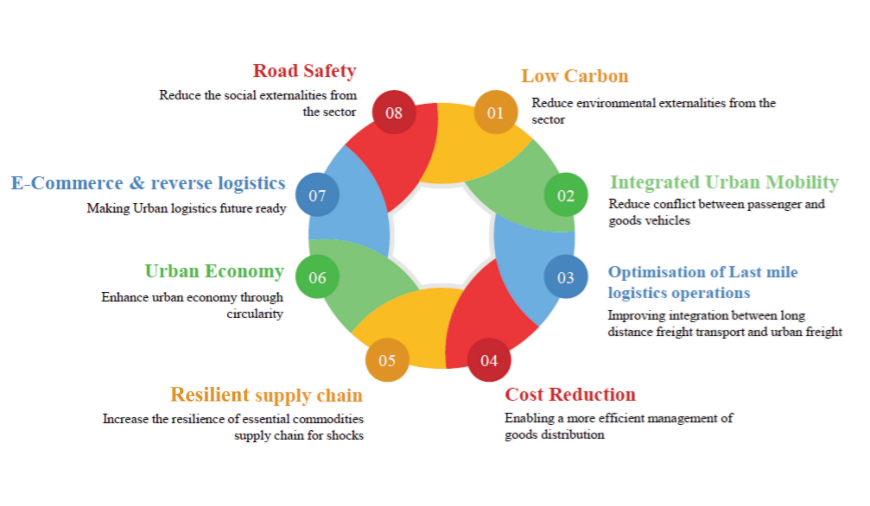The Corporation of the City of Panaji (CCP), with technical support from ICLEI South Asia, has developed and approved the Low Carbon Action Plan (LCAP-UF) for urban freight under the EcoLogistics project.
The action plan prioritises strategies that focus on promoting transportation of goods with minimised impacts on air quality, noise, health, fatalities, and injuries, besides reducing traffic congestion and GHG emissions. It is the first time that low-carbon strategies for urban freight have been developed by an Indian city. The dual purpose of the action plan is to position policymakers to reduce GHG emissions from the sector, mitigating externalities, while also improving efficiency. To formulate specific actions, it was crucial to identify the key goals of various stakeholders associated with the sector.
Urban freight is an integral part of a city’s functioning, providing both citizens and businesses with products they need daily; right from food, FMCG products, and e-commerce deliveries to construction material. However, urban freight transport has significant environmental and social impacts, which hampers urban life quality. Globally, freight transport comprises up to 25 percent of urban vehicles, takes up to 40 percent of motorised road space, and contributes to up to 40 percent of urban transport-related CO2 emissions.
In this context, Panaji’s LCAP, which was approved during the CCP’s meeting on the 28th of March 2022, has strategies that focus on minimising the above-mentioned negative impacts of urban freight transportation, and on improving efficiency in the sector.

The EcoLogistics project is being supported by German Federal Ministry for the Environment, Nature Conservation, and Nuclear Safety (BMU) through the International Climate Initiative (IKI). Apart from Panaji, the project is being implemented in the cities of Kochi and Shimla in India.